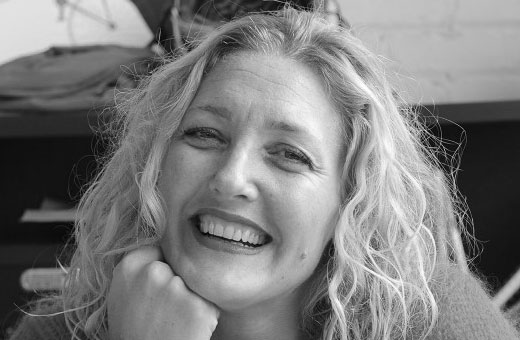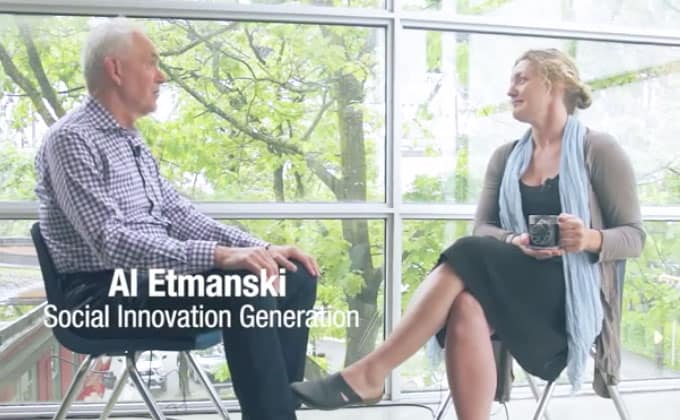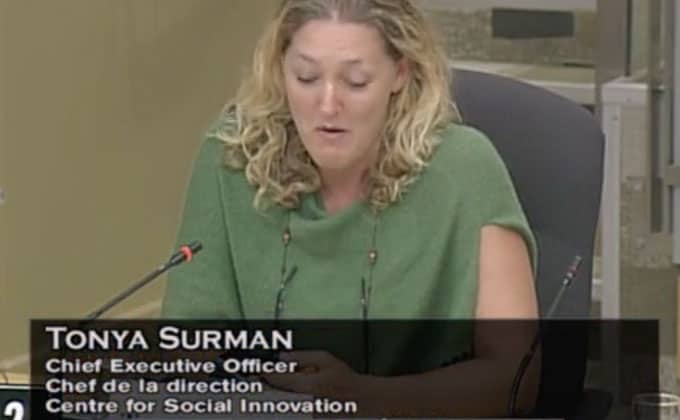Tonya Surman
Centre for Social Innovation
Toronto, ON

Sector Impact
Civic Engagement
Economic Development
Education
Environment & Sustainability
The social aspect of social innovation
Tonya Surman gives social entrepreneurs a space to create, incubate and grow their business ideas, supporting ventures with the potential to tackle some of today’s most pressing issues.
Social finance for change.
Social innovation and business are not mutually exclusive concepts. In fact, some argue that social enterprise is built on the premise that the most effective solutions to some of the world’s most daunting problems will come from for-profit business ideas.
Tonya Surman has spent her career creating work spaces that nurture community and collaboration in the social enterprise sector — and pioneered ways to leverage business and social investment to make ideas reality.
Tonya is one of Canada’s leading social entrepreneurs, founding independent online newspaper rabble.ca back in 1999. In 2004, Tonya co-founded the Centre for Social Innovation, one of the first coworking spaces in the world. Originally comprised of 14 founding members, CSI is now home to 1,000 non-profits, charities and social ventures in its three Toronto locations. Its members employ more than 2,500 people and generate around $250 million in annual revenue.
Much more than just a coworking space, CSI accelerates and incubates a number of social enterprises, giving them the tools, resources and, in some cases, the financial assistance they need to grow their impact. CSI has incubated hundreds of organizations including TechSoup Canada, the Ontario Nonprofit Network, Social Innovation Canada and many more.
Being part of a community of social enterprises is so valuable to organizations that CSI rapidly expanded and within a few years of opening found itself with a long waiting list. But Tonya knew that renting space left the unique community she built vulnerable to skyrocketing rents. As a small organization with only $50,000 in the bank, expanding by renting more space seemed risky. Tonya realized that to ensure the stability and sustainability of this community, she needed to buy a building.
While CSI didn’t have anywhere near the $6.8 million it needed, it was rich in another asset: community. So Tonya innovated a new social finance tool to realize her vision. By enabling community members to invest in a RRSP-eligible Community Bond, she raised $2 million, which leveraged the mortgage needed to purchase a 36,000-square-foot building in Toronto.
Tonya is using her role as CEO of CSI to expand her impact far beyond the walls of her working spaces. She is scaling the Community Bond through a social franchise model to help other social entrepreneurs raise funds to grow.
By both doing and helping others do, she is changing mindsets so that social entrepreneurs and enterprises are recognized in the market for the full value they create — both profit and the change we need to see for the plant and its people.



